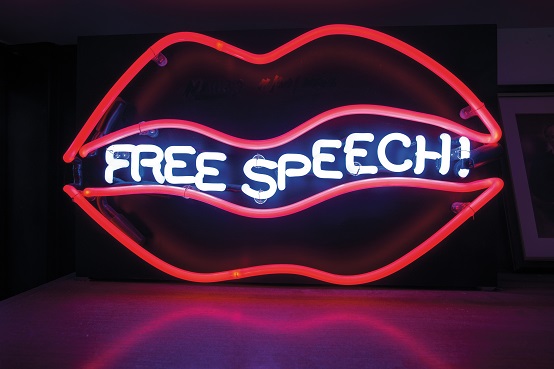 I did a big story for the University of Chicago Law School Record on the subject of freedom of expression at the school. It was a semi-hot topic when I got the assignment in early November because the University got some press for a letter went out that touched on the buzzwords safe spaces and trigger warnings, but the subject took on a whole new meaning after the election when it became apparent that liberals and conservatives really had an issue with not hearing each other--or even wanting to.
I did a big story for the University of Chicago Law School Record on the subject of freedom of expression at the school. It was a semi-hot topic when I got the assignment in early November because the University got some press for a letter went out that touched on the buzzwords safe spaces and trigger warnings, but the subject took on a whole new meaning after the election when it became apparent that liberals and conservatives really had an issue with not hearing each other--or even wanting to.
This was my first assignment for the Record and I wanted to do a good job (duh.) I'd never covered law before and I like staying on good terms with the University of Chicago because they have been a great place to do work with. I was happy with the way the story turned out, and these 3 reasons helped:
Research
Something I've learned over the last few years that shouldn't probably have to be learned but it did was that I cannot fake my way through a story. If I don't absolutely understand what I'm talking about, my interviews stink and the writing stinks. And law is not something I have some working knowledge of like art history or nutrition (even though my family is lousy with lawyers.) I knew if I wanted to do this story right I couldn't do that thing where my eyes sort of glaze over and I skim through an article and I ask vague questions of my sources and hope they got what I sort-of meant. I made sure I not only understood what every committee or report was for or what it was based on, I made sure I could say so in my own words.
An Available Editor
My editor made it clear that she was around for asking questions and bouncing ideas off of, and not all editors care to do that or have the time. Something I don't typically do with my stories is that I ran many of my potential interview questions off her before actually doing the interviews. I'm not a legal scholar and the people I was interviewing were all very big deals, and some of them a little intimidating (read this profile of Martha Nussbaum in the New Yorker and see how you'd feel about coming to her without having your shit together.) Thanks to my editor's availability and willingness to help me prep I think I got the most out of my time with these busy, smart, people and also had a good skeleton in place before I actually began writing.
Parking
This is not a joke. I drove down to Hyde Park from Evanston several times for this story but the thing that made that 45 minute drive not so bad was the fact that the Law School has visitor parking. One of my least favorite feelings in the world is being late for something and then being later because I can't find parking. Heading down to interview these big deal legal scholars was much more relaxing knowing I could just pull into a parking spot and go do my job.
Make no mistake, the piece was still a challenge--we went through a few substantial edits and my editor still ended up contributing to the piece but a lot of it, she told me anyway, was due to institutional knowledge I couldn't help but not have (but it's not like I don't recognize my story). My editor sent me a very nice email after the story was done that I saved because some days I need stuff like that. Once in awhile I put in a lot of work into a story and it doesn't work out right and other days I do some work and a story turns out fine. It was nice to do a job where I felt like my work was seen in progress and on the page as well.
